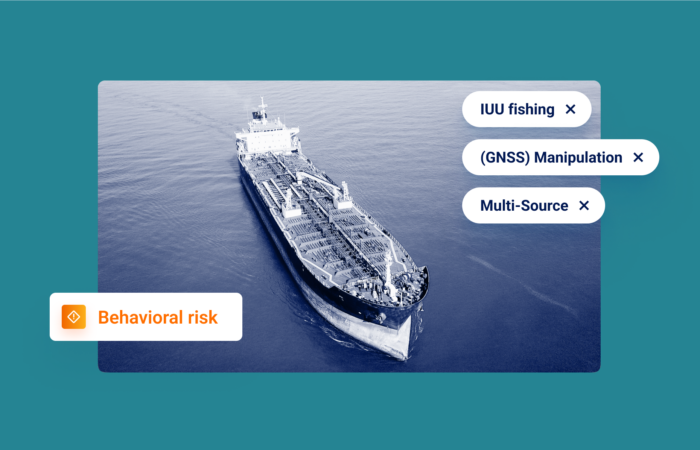The Next Step Following the Quad Statement?

What’s inside?
Illegal, unregulated, and unreported (IUU) fishing can be extremely damaging to the environment, but it is closely connected to other harms and is part of a “great power competition.
The recent joint statement released by “the Quad” – leaders of Australia, India, Japan, and the U.S. – promises efforts to combat IUU.
“We welcome a new maritime domain awareness initiative, the Indo-Pacific Partnership for Maritime Domain Awareness (IPMDA), designed to work with regional partners to respond to humanitarian and natural disasters, and combat illegal fishing (Windward’s emphasis added).”
Windward has been advising our customers that although the environmental consequences of illegal, unregulated, and unreported fishing can be severe, they would be wise to also consider the associated geopolitical implications.
As part of our announcement last month that Windward has expanded our artificial intelligence (AI) insights to include IUU fishing, Matan Peled, Co-Founder and Head of U.S. Business at Windward, considered the expanded scope of potential damages:
“Illegal fishing is a major concern in and of itself, but it’s also a symptom of other issues plaguing the maritime industry. Fishing ships that engage in IUU fishing are quite often involved with slave labor and other criminal activity, in some cases on behalf of foreign governments encroaching on other sovereign governments’ exclusive economic zones. Governmental authorities need to move beyond siloed methods of maritime domain awareness and gain a holistic view of malignant actors to mitigate the geopolitical, economic, and environmental risks involved with IUU fishing.”
But How?
The new Indo-Pacific Partnership for Maritime Domain Awareness (IPMDA) program plans to share commercially-available satellite data to alert Southeast Asian countries about possible intrusions. The Financial Times article notes that the program would: “…monitor radio frequencies and radar signals that would allow countries to track vessels that have turned off AIS (automatic identification systems) transponders to avoid detection.”
Windward fully supports the usage of satellite data and imagery, along with AIS transponder monitoring and tracking of dark activities, to begin tackling IUU and associated issues. This is a strong first step and it is encouraging to see Quad leaders taking these issues and their partnership seriously. “In a short time, we’ve shown the Quad isn’t just a passing fad. We mean business,” said U.S. President Joe Biden, according to The Guardian.
Organizations within the maritime ecosystem can go a step further and benefit from predictive intelligence, based on over a decade of proprietary data and machine learning technology. Near real-time information is helpful, but vessels could be on the move after plundering the local marine ecosystem by the time it is relayed. Predictive intelligence and insights enable organizations to operate proactively.
Interested in learning more? A previous Windward blog post explains a significant, but overlooked indicator of IUU. Our recent case study detailed two separate incidents involving vessels flying the Chinese flag allegedly engaging in IUU fishing in overseas waters.
As always, Windward is here as your trusted advisor to explain the best ways to tackle IUU.












